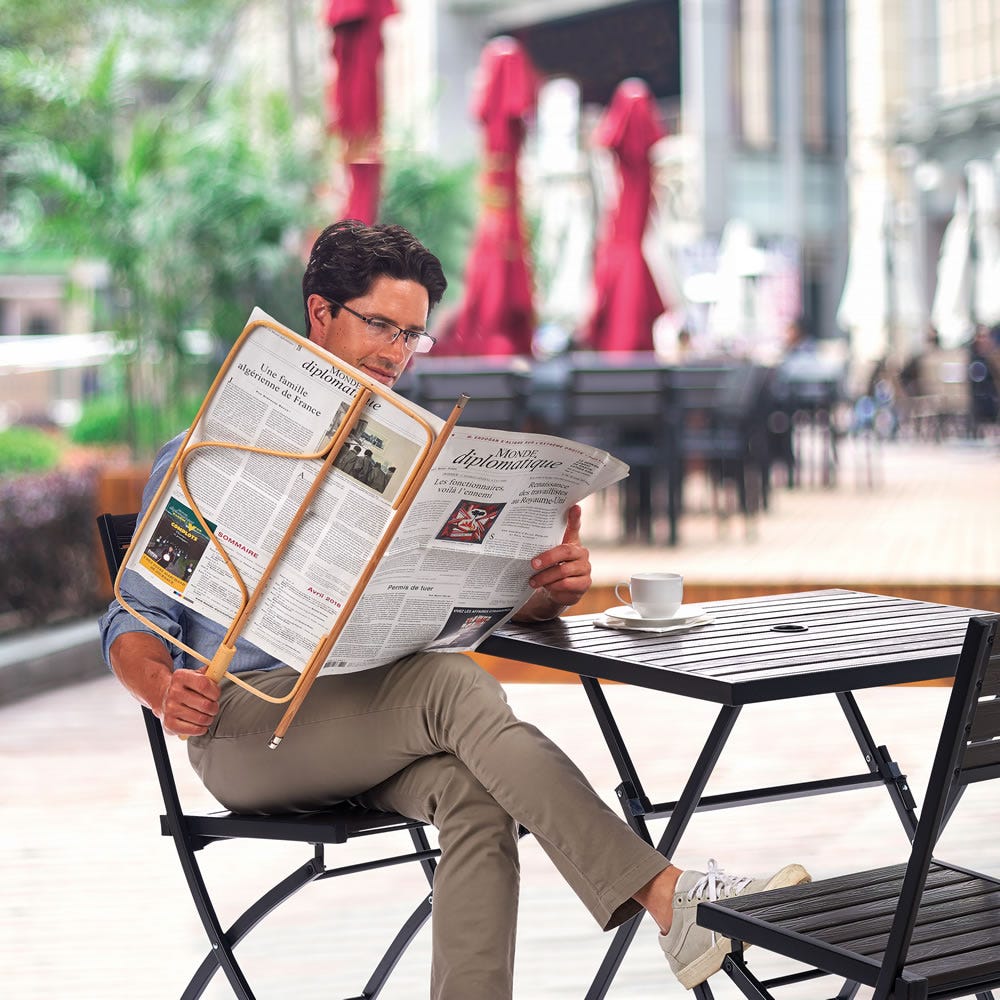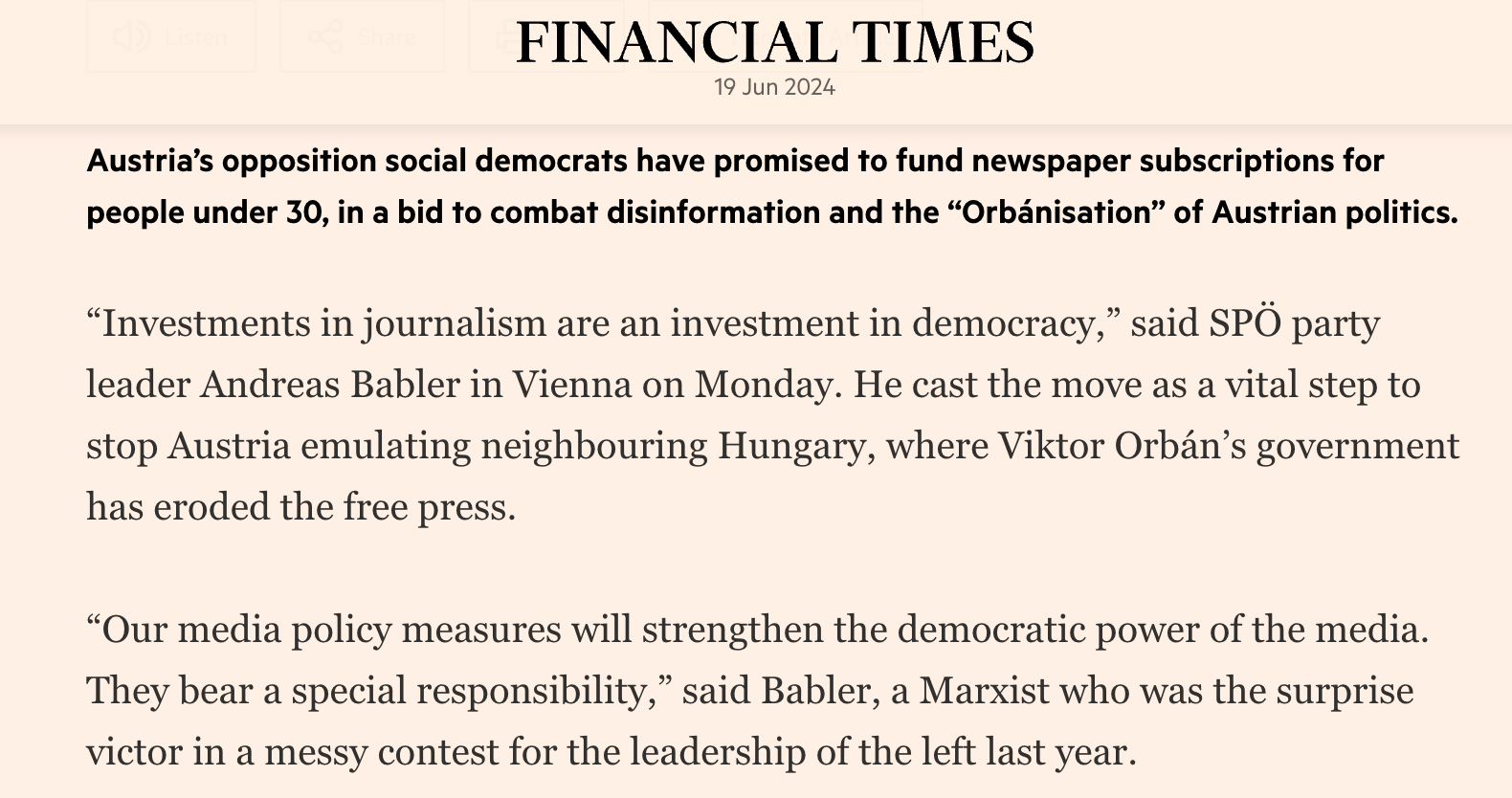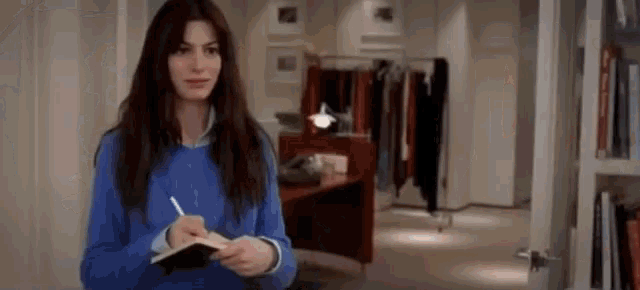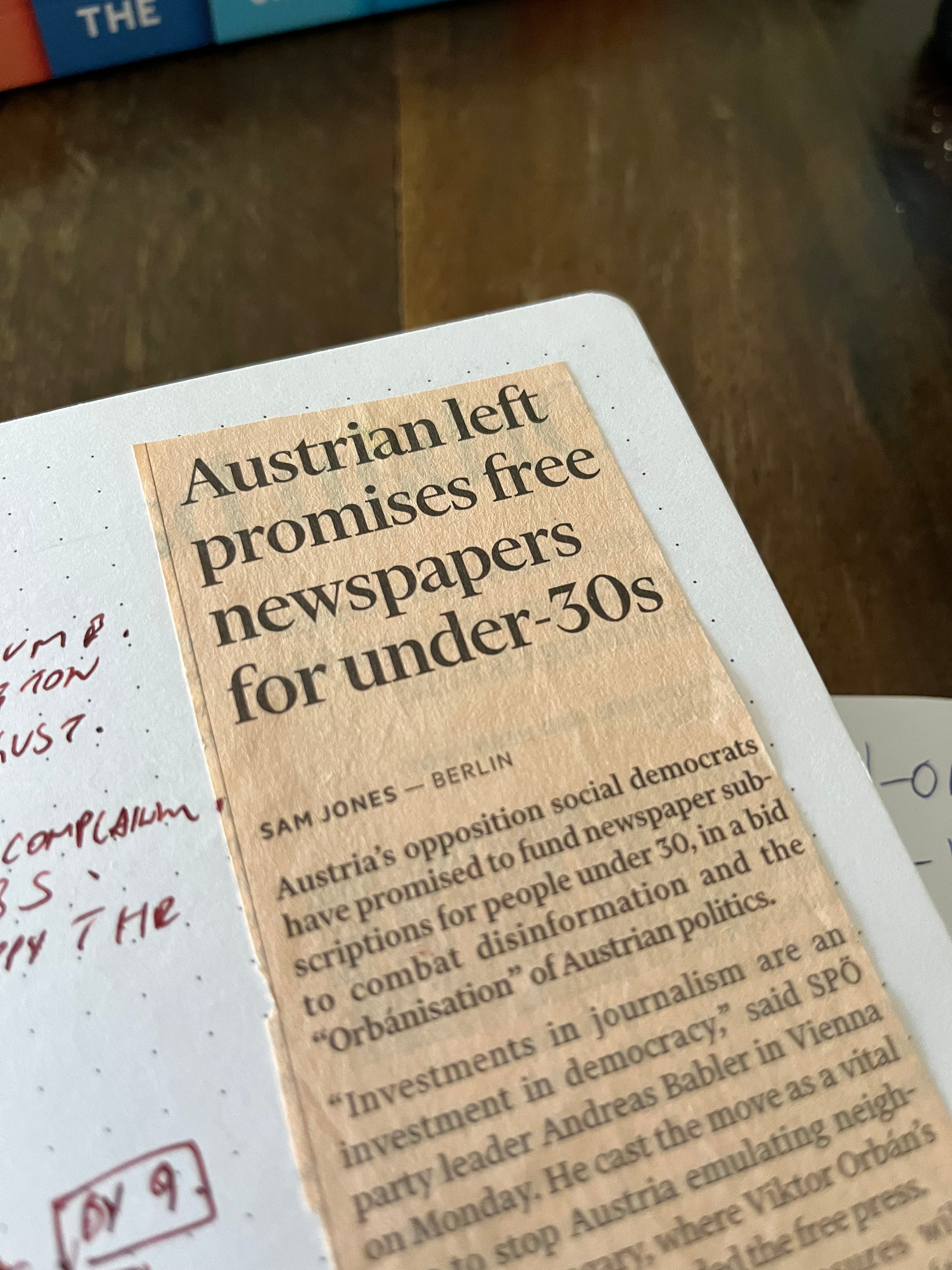One of the most common things we read in guidebooks before our visit to Vienna earlier this year was that we should drop by one of their famous coffeehouses. Don’t be in a rush. Order some specialty coffee. And read the newspaper. Every old-school cafe in Vienna stocks all the major dailies in physical form, each accompanied by a handy gadget that helps keep them crisp and uncrumpled for the next patron. So much so, that this gadget is called The Viennese Coffeehouse Newspaper Holder.

So it’s no surprise that the city that loves its newspapers so much just made an announcement to breathe new life into the industry. Austrian left just promised free newspapers to under-30s.

I think this is a great move, worth emulating not just by people who believe in the democracy-boosting power of fair journalism, but everyone who wants a better gardened brain.
A Gen Z study from Google subsidiary Jigsaw showed that where older generations are out there struggling to fact-check information and cite sources, Gen Zers don't even bother. They just read the headlines and then speed-scroll to the comments, to see what everyone else says. They're outsourcing the determination of truth and importance to like-minded, trusted influencers. The fears of consuming algorithm-curated news that plagued millennials - “the filter bubble” - just turned bubblier for Gen Z.
Young people have long abandoned newspapers. But what has taken its place isn’t necessarily better.
Part of it has been the global disenchantment with politics. And let’s be honest when I say “news”, most of you thought “politics”. Part of it is thinking about newspapers as a boomer artefact. Frenetic mornings and liquid breakfasts are the antithesis of physical newspapers.
Amidst all this we ignore that physical newspapers are the simplest serendipity engines.
Amidst all this we ignore that physical newspapers are the simplest serendipity engines. When I go to a news site, I have consciously click on sections. When I’m on social media, the feeds are already optimized for my dopamine receptors. Yes there is still, to use a tech industry term, “discovery” - but it’s not necessarily making you consider connections you otherwise won’t have. With a physical paper, you never know what’s on the next page. And there is no way to know which column you want to read without skimming all the other headlines.
The other thing that doesn’t get talked about enough is the actual thing-ness of newspaper. It’s a physical object on your dining table (which apparently is dead). Multiple studies have found that when you touch physical paper, you get something called “haptic feedback” - and this can significantly increase our interest and engagement in learning activities and improve our reading skills.
Physical newspapers literally make you smarter by helping you grasp the nature of the world we live in.
I’ve seen this at work over the past few years. All employees had complimentary access to the digital subscription for the FT. But, in a seemingly lavish indulgence I still paid for a physical copy of The Financial Times to be delivered at our doorstep. Nothing comes closer to sacred in our home than the ritual of chai and FT in the morning. Absence of one of those ingredients can severely derail the day. I read tons of online publications, scroll hundreds of videos and am inundated with substacks. But the FT continues be the scaffolding around which all those get framed.
If you’re rolling your eyes at the thought of a physical newspaper, I hope you hear the following in Miranda Priestly’s voice.

A better understanding of our world gives us better anchors for our own lived reality. If you knew how the avian flu has led to culling of millions of birds in Asia, you’d be less upset about the price of eggs going up. Because news is so much more than one article that you are “interested in”. News is knowing that Indonesia mines more Nickel than anyone else in the world (100 times that of Brazil). But that most of that is China owned. And as the world goes through green transition with EVs and better energy storage Nickel is arguably the most important metal in the world. And that it should be no surprise that Elon, owner of the largest EV company, paid the country a visit earlier this year. BYD, the Chinese EV manufacturer breathing down Tesla’s neck is investing there too. And if you happen to be in the market for a new car, and I hope it’s an EV, these deals in that country might just determine how much it costs you.
Everything connects to everything else. And everything else connects to your life.
Each of those was a story on a different day in a different section of the newspaper. I would have never “bumped into” them if I had depended on algorithmic overlords.
< end scene>
I hope more governments and civic bodies come forth to do what the Austrian opposition is trying to do. Until then, I’ll be diligently reading my beloved pink broadsheet. And I know it will keep sparking my curiosity. Exactly the way it did to inspire this very post.


